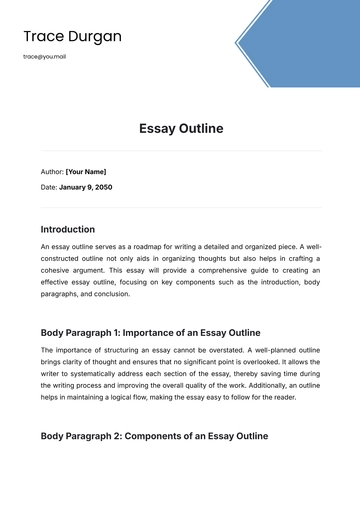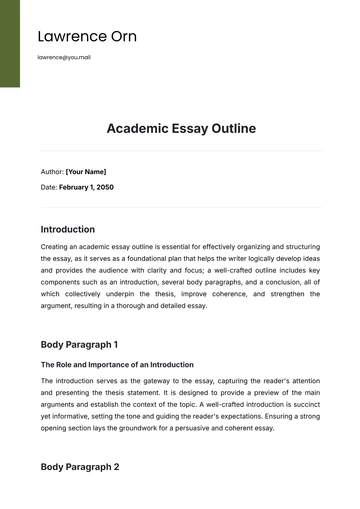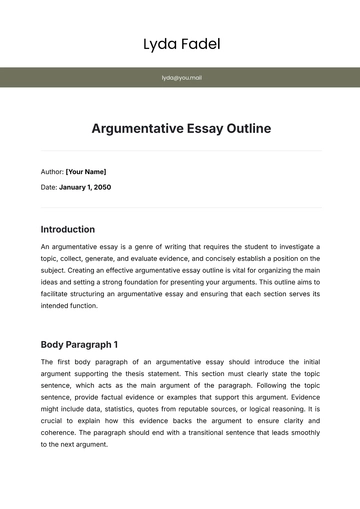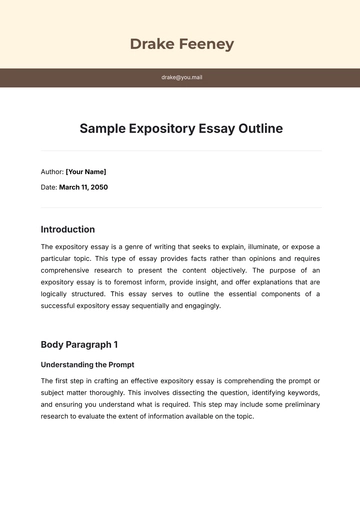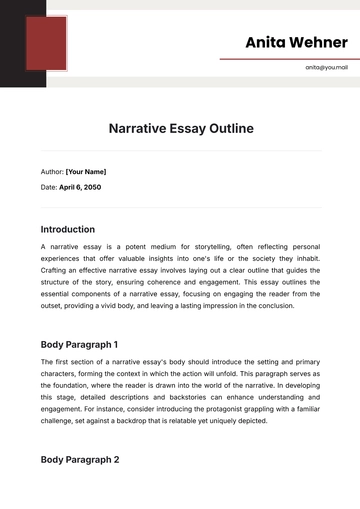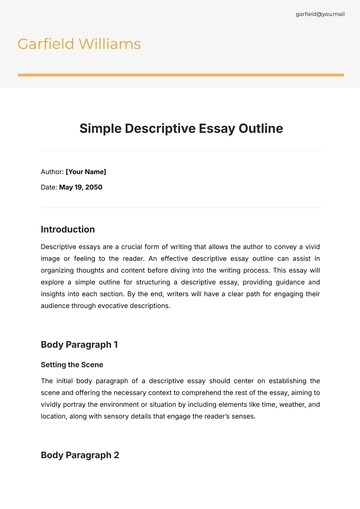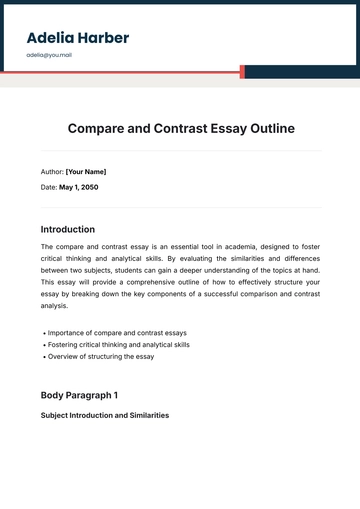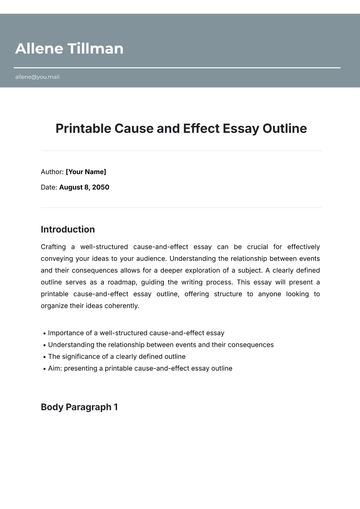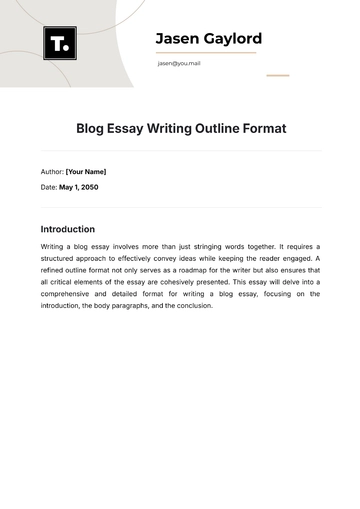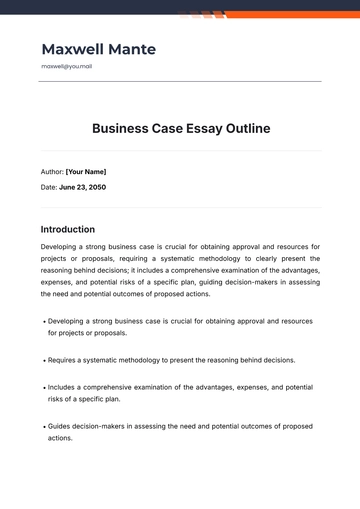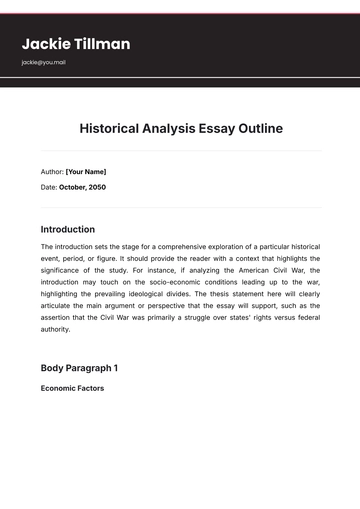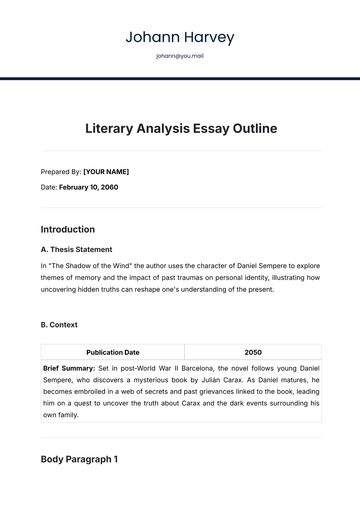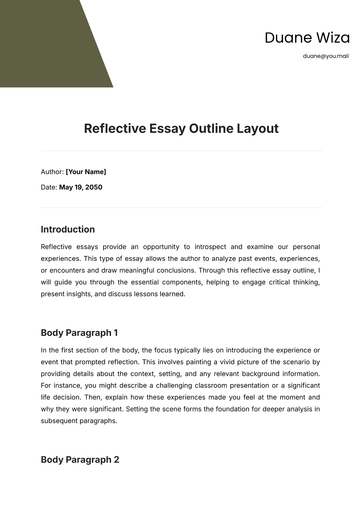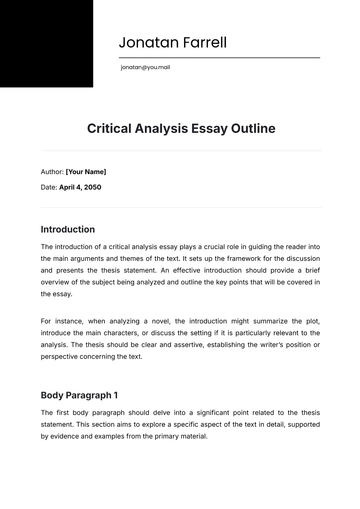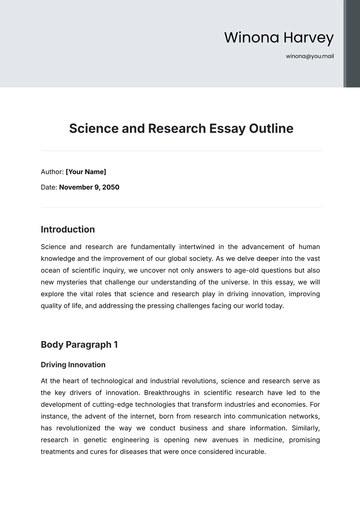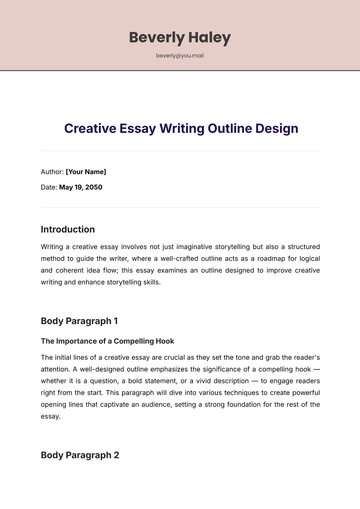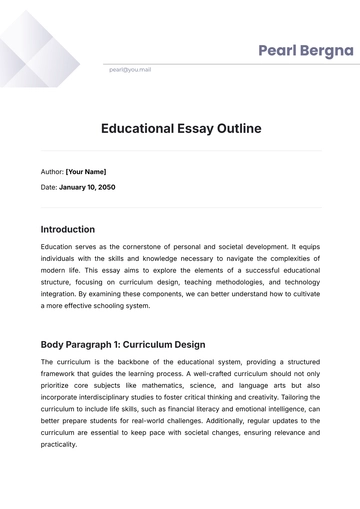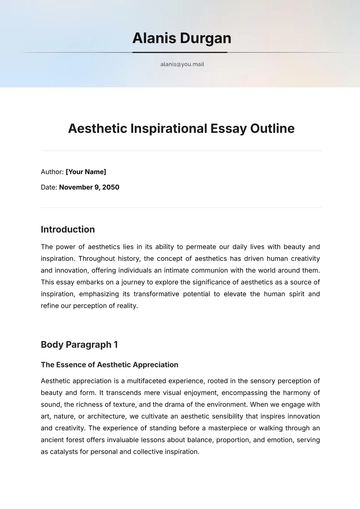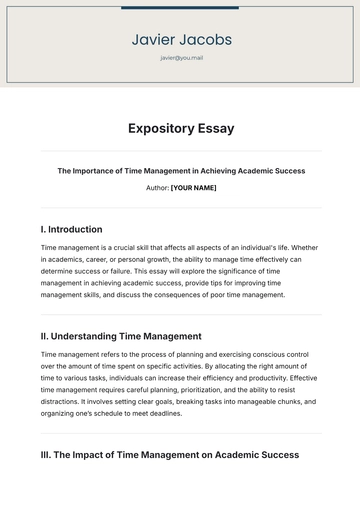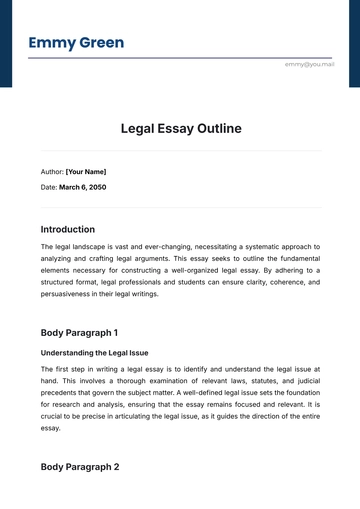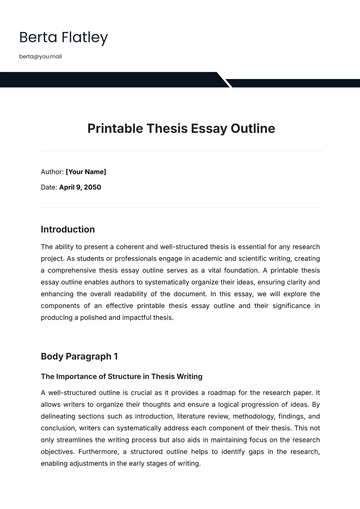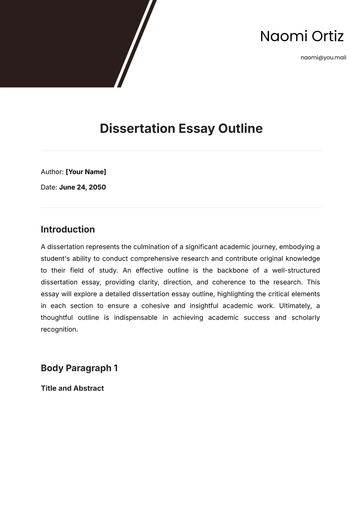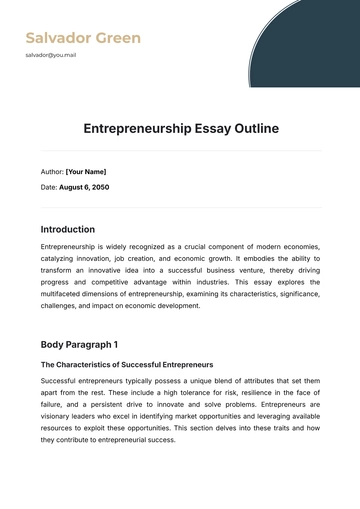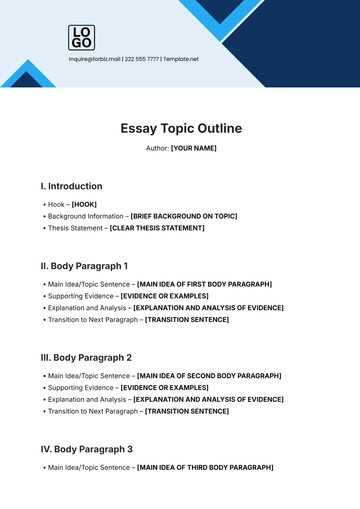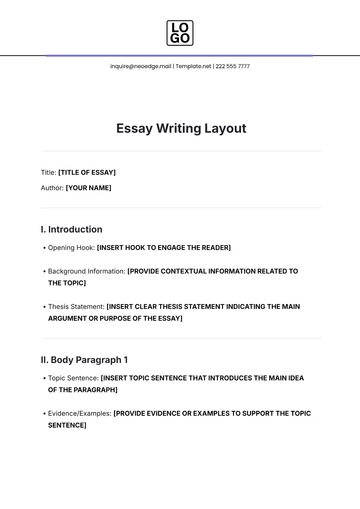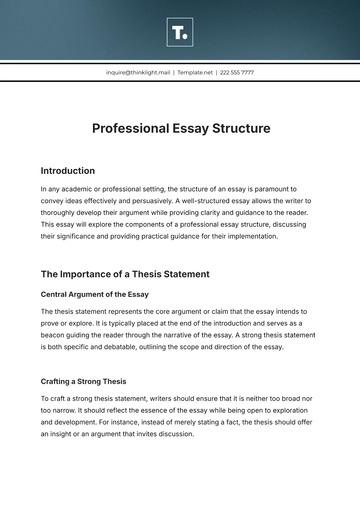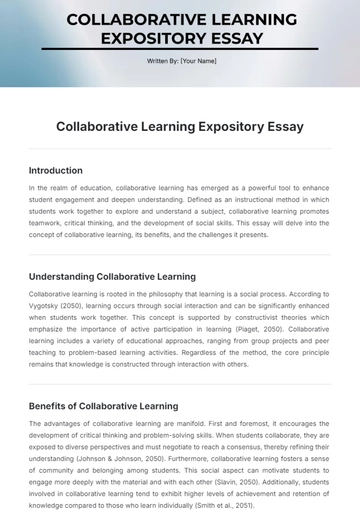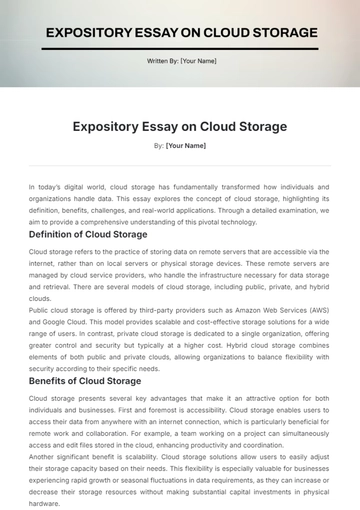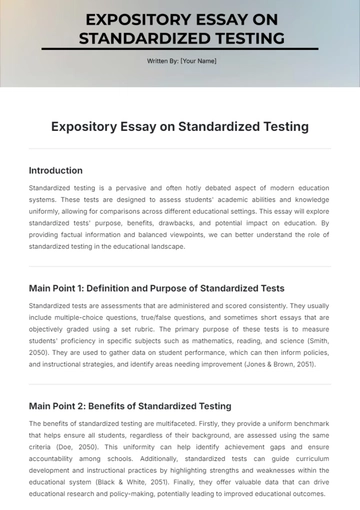Free Expository Essay on Special Education
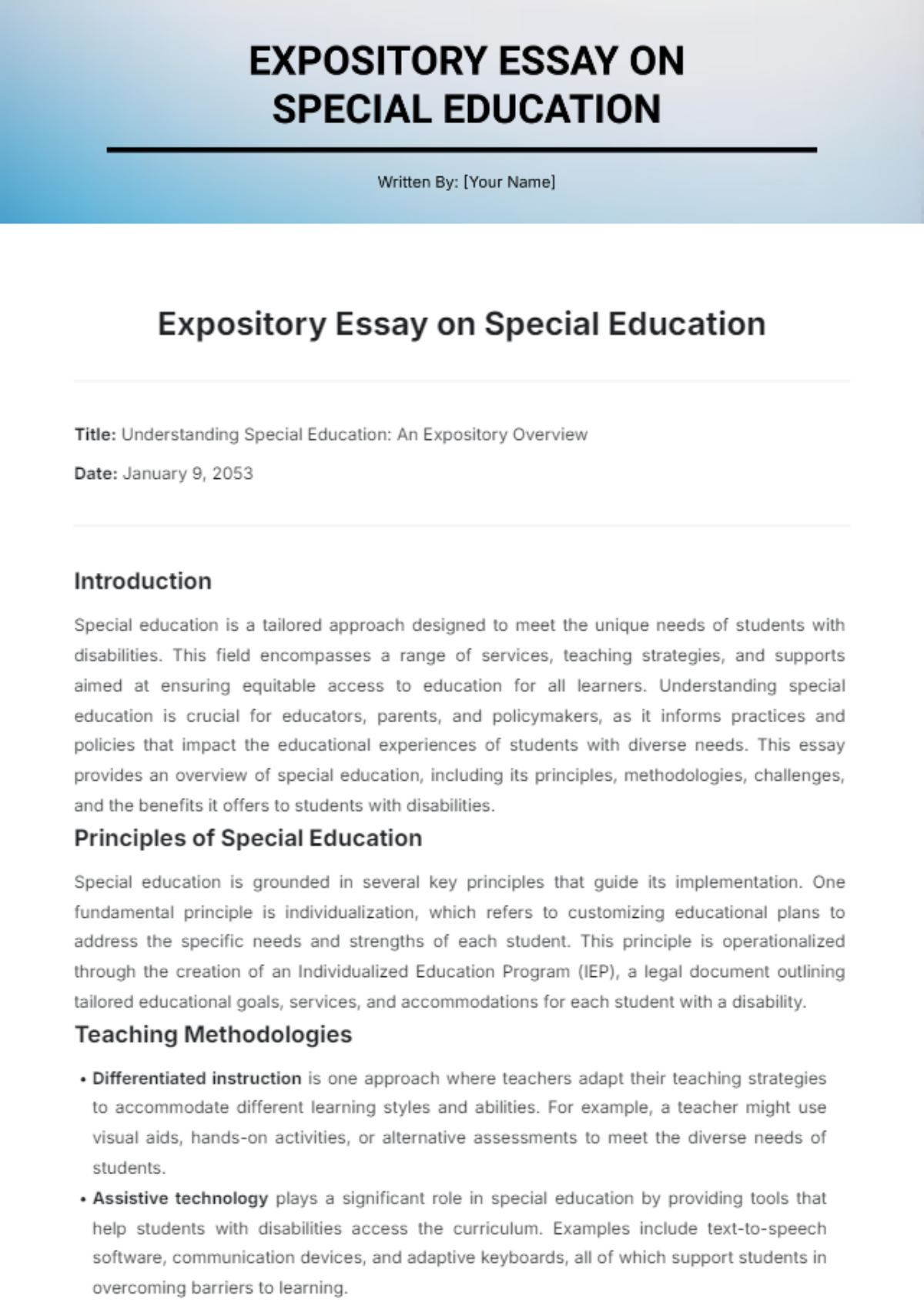
Title: Understanding Special Education: An Expository Overview
Date: January 9, 2053
Introduction
Special education is a tailored approach designed to meet the unique needs of students with disabilities. This field encompasses a range of services, teaching strategies, and supports aimed at ensuring equitable access to education for all learners. Understanding special education is crucial for educators, parents, and policymakers, as it informs practices and policies that impact the educational experiences of students with diverse needs. This essay provides an overview of special education, including its principles, methodologies, challenges, and the benefits it offers to students with disabilities.
Principles of Special Education
Special education is grounded in several key principles that guide its implementation. One fundamental principle is individualization, which refers to customizing educational plans to address the specific needs and strengths of each student. This principle is operationalized through the creation of an Individualized Education Program (IEP), a legal document outlining tailored educational goals, services, and accommodations for each student with a disability.
Teaching Methodologies
Differentiated instruction is one approach where teachers adapt their teaching strategies to accommodate different learning styles and abilities. For example, a teacher might use visual aids, hands-on activities, or alternative assessments to meet the diverse needs of students.
Assistive technology plays a significant role in special education by providing tools that help students with disabilities access the curriculum. Examples include text-to-speech software, communication devices, and adaptive keyboards, all of which support students in overcoming barriers to learning.
Challenges in Special Education
Resource limitations often hinder the ability to provide adequate support, including a shortage of specialized personnel and insufficient funding for necessary resources. Schools may struggle to implement effective programs due to these constraints.
Stigma and misconceptions also pose challenges. Misunderstandings about disabilities and special education can lead to negative attitudes and social exclusion. Addressing these issues requires ongoing education and awareness efforts to promote acceptance and understanding.
Benefits of Special Education
Personalized learning helps students achieve their full potential by addressing their specific needs and setting achievable goals. This tailored approach enhances students' academic performance and boosts their confidence and self-esteem.
Social integration by facilitating interactions between students with and without disabilities. Inclusive classrooms provide opportunities for students to develop empathy and collaborative skills, which are valuable in both academic and social contexts.
Conclusion
In conclusion, special education is a vital component of the educational system, designed to support students with disabilities through individualized approaches and inclusive practices. Despite facing challenges such as resource limitations and stigma, special education provides significant benefits, including personalized learning and social integration. Understanding these aspects helps stakeholders contribute to a more equitable and effective educational environment for all students. Continued efforts to improve and support special education will ensure that every learner has the opportunity to succeed.
References
Individuals with Disabilities Education Act (IDEA). (2050). U.S. Department of Education.
Smith, D. D. (2051). Introduction to Special Education: Making a Difference. Pearson.
Wrightslaw. (2052). Special Education Law and Advocacy. Wrightslaw.
- 100% Customizable, free editor
- Access 1 Million+ Templates, photo’s & graphics
- Download or share as a template
- Click and replace photos, graphics, text, backgrounds
- Resize, crop, AI write & more
- Access advanced editor
Template.net's Expository Essay on Special Education Template provides a customizable platform to discuss the challenges and advancements in special education. With its editable format, you can tailor your essay to focus on key issues, policies, or personal insights. Seamlessly editable in our AI Editor Tool, this template ensures that your work is professionally structured and ready for submission.
